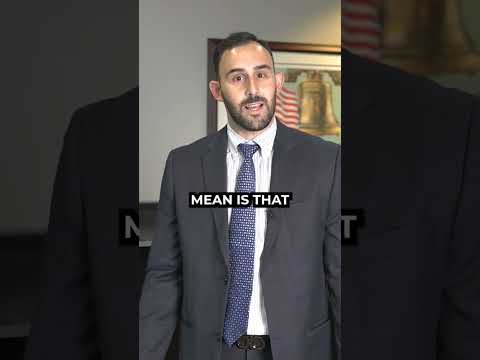
Understanding the No-Fault Law in Florida for Property Damage: An In-depth Analysis
Welcome to this informative article on the No-Fault Law in Florida for property damage. In the following text, we will delve into the intricate details of this topic, shedding light on its complexities and providing you with a comprehensive understanding.
Before we proceed, it is important to note that while we strive to provide accurate and up-to-date information, this article should not be used as a substitute for professional legal advice. Laws can vary, and it is always advisable to cross-reference with other reliable sources or consult with a legal professional before making any decisions or taking action.
📋 Content in this article
Now, let’s embark on our journey to unravel the intricacies of the No-Fault Law in Florida, specifically concerning property damage. By the end of this article, you will have a clear comprehension of this law and its implications.
To structure our exploration, we will present the key aspects of the No-Fault Law in Florida for property damage in a step-by-step manner. This will allow us to cover all the necessary information and ensure that you can follow along easily.
Understanding Property Damage Coverage under Florida’s No-Fault Law
Understanding Property Damage Coverage under Florida’s No-Fault Law
In the state of Florida, the concept of property damage coverage falls under the broader framework of the no-fault law. This law is designed to streamline the process of handling insurance claims for injuries and property damage resulting from automobile accidents. By understanding the intricacies of property damage coverage, you can navigate the legal landscape with confidence and ensure that your rights are protected.
Under Florida’s no-fault law, each driver is required to carry a minimum of $10,000 in property damage liability coverage. This coverage is intended to compensate for damages to someone else’s property, such as their vehicle or other tangible assets, that occur as a result of an accident for which you are at fault. It is important to note that property damage liability coverage does not cover damages to your own vehicle or property.
To help you grasp the key aspects of property damage coverage under Florida’s no-fault law, we have outlined the following points:
Understanding the Mechanics of the Florida No-Fault Law: A Comprehensive Overview
Understanding the No-Fault Law in Florida for Property Damage: An In-depth Analysis
The Florida No-Fault Law, also known as the Personal Injury Protection (PIP) law, is a unique system that affects how insurance claims for injuries and property damage are handled in the state of Florida. It is crucial for residents and visitors alike to understand the mechanics of this law to protect their rights and navigate the claims process effectively. In this in-depth analysis, we will explore the key aspects of the No-Fault Law in Florida as it relates specifically to property damage claims.
1. What is the Florida No-Fault Law?
The Florida No-Fault Law, established in 1971, requires all drivers to carry Personal Injury Protection (PIP) insurance coverage as part of their auto insurance policy. This coverage provides compensation for medical expenses, lost wages, and other related costs regardless of who is at fault in an accident. While the main focus of this analysis is on property damage claims, it is important to understand the broader context of the Florida No-Fault Law.
2. Property Damage Claims Under the Florida No-Fault Law
While PIP insurance covers injuries sustained in an accident, it does not typically provide coverage for property damage. Instead, property damage claims are handled differently under Florida law. When it comes to property damage claims, the following key points should be considered:
Unlike personal injury claims, property damage claims are subject to determining fault. The at-fault party’s insurance company is generally responsible for covering the cost of property damage.
Drivers in Florida are required to carry Property Damage Liability (PDL) insurance as part of their auto insurance policy. This coverage ensures that the at-fault party’s insurance company can compensate for property damage caused to others.
The minimum PDL coverage limit in Florida is set at
Title: Understanding the No-Fault Law in Florida for Property Damage: An In-depth Analysis
Introduction:
The No-Fault Law in Florida for property damage is a crucial aspect of the legal framework governing automobile accidents in the state. Staying current with this law is of utmost importance for residents, drivers, and legal professionals alike. This article aims to provide an in-depth analysis of the No-Fault Law in Florida for property damage, shedding light on its significance and clarifying key concepts. However, readers are strongly advised to verify and cross-reference the content of this article with official sources and consult legal professionals for personalized advice.
1. Background:
The No-Fault Law, also known as Personal Injury Protection (PIP) insurance, was introduced in Florida in 1971. It requires vehicle owners to carry a minimum amount of insurance coverage to provide compensation for medical expenses and lost wages resulting from an automobile accident, regardless of who was at fault.
2. Scope of the No-Fault Law:
The No-Fault Law primarily covers property damage resulting from automobile accidents. It ensures that drivers and vehicle owners have access to immediate medical treatment and wage loss benefits, without having to establish fault or negligence. This law applies regardless of whether the accident occurred on public or private property.
3. PIP Insurance Coverage:
Under the No-Fault Law, all motorists in Florida are required to carry a minimum PIP insurance coverage of $10,000. is designed to provide immediate medical benefits, including medical expenses, rehabilitation costs, and lost wages resulting from an accident. It is important to note that PIP insurance does not cover property damage to vehicles, which is typically handled separately through collision or comprehensive coverage.
4. Property Damage Liability (PDL) Coverage:
While PIP insurance covers medical expenses and wage loss, property damage to vehicles is addressed through separate Property Damage Liability (PDL) coverage. PDL coverage is mandatory in Florida, with a minimum requirement of $10,000.
